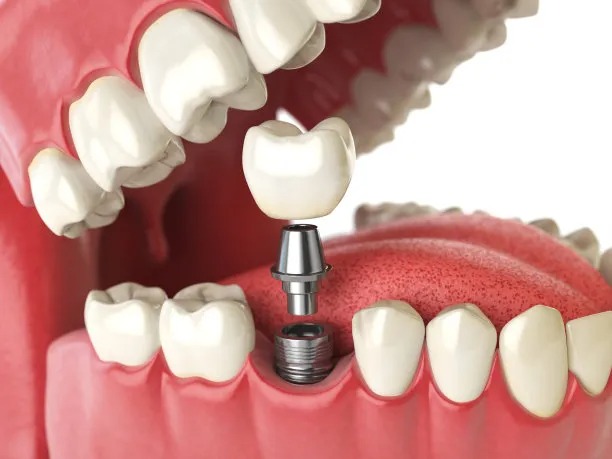Understanding the Impact of Periodontal Disease on Overall Health and How to Prevent It Effectively
Summary: Periodontal disease, often called gum disease, is a common dental issue that can significantly influence overall health. This article explores the interplay between periodontal disease and other health conditions, its prevention, and effective treatment methods. The first section details the systemic effects of periodontal disease on cardiovascular health, diabetes, and respiratory infections. The second section discusses the importance of proper oral hygiene and regular dental check-ups in preventing gum disease. The third section emphasizes lifestyle modifications, such as diet and smoking cessation, for optimal gum health. Finally, the fourth section highlights the role of professional treatments and therapies in effectively managing and preventing periodontal disease. By understanding these aspects, individuals can take proactive steps toward maintaining not only their oral health but also their overall well-being.
1. Systemic Effects of Periodontal Disease

Periodontal disease is not merely a localized dental issue; it has far-reaching effects on the bodys overall health. One of the most significant concerns is its connection to cardiovascular health. Research indicates that the bacteria associated with periodontal disease can enter the bloodstream, leading to inflammation and possibly contributing to heart disease.
Additionally, individuals with diabetes are at a greater risk of developing periodontal disease. This connection is bidirectional; while periodontal disease can complicate blood sugar control, poorly controlled diabetes can increase susceptibility to gum disease. This underscores the need for vigilant oral care among diabetics.
The respiratory system is also affected, as the pathogens from gum infections can be inhaled into the lungs, causing respiratory issues or exacerbating existing conditions such as pneumonia. This exemplifies how periodontal disease can act as a risk factor for serious health complications that extend beyond the mouth.
2. Importance of Oral Hygiene Practices
Effective prevention of periodontal disease starts with diligent oral hygiene practices. Daily brushing and flossing are essential in removing plaque, which, if not addressed, can harden into tartar and lead to gum disease. It is recommended to brush at least twice a day and floss daily to maintain gum health.
Regular dental check-ups play a critical role in identifying and treating early signs of periodontal disease. Dentists can offer professional cleaning services to remove tartar buildup and assess gum health. Individuals are encouraged to visit their dentist every six months for preventative care and to adapt their oral hygiene routines as advised.
Moreover, the use of antiseptic mouthwashes can help reduce the bacteria in the mouth, providing an added layer of defense against gum disease. Incorporating these habits into a daily routine can tremendously impact maintaining healthy gums and preventing periodontal disease.
3. Lifestyle Modifications for Gum Health
Beyond regular dental care, lifestyle choices significantly contribute to gum health. A well-balanced diet rich in vitamins and minerals can bolster the immune system, aiding in the body’s fight against gum disease. Foods high in antioxidants, such as fruits and vegetables, can be particularly beneficial for gum health.
Quitting smoking is another crucial lifestyle modification. Smoking is strongly linked to the onset and progression of periodontal disease, as it impairs blood flow to the gums and hinders healing. Individuals looking to enhance their gum health should consider smoking cessation programs to aid this transition.
Hydration also plays a significant role in maintaining healthy gums. Drinking ample water helps wash away food particles and bacteria that can contribute to plaque buildup. Ensuring sufficient hydration allows the body to produce saliva, which protects against periodontal disease.
4. Professional Treatments and Therapies
When preventive measures fall short, professional treatments become necessary for managing periodontal disease. Deep cleaning procedures, or scaling and root planing, remove tartar and plaque from below the gum line, often requiring multiple visits based on the severity of the condition.
In some cases, dentists may recommend surgical interventions to reduce pockets that form between the teeth and gums, increasing the effectiveness of at-home care efforts. These procedures help restore gum health and can prevent further systemic consequences of periodontal disease.
Additionally, advancements in periodontal technologies, such as laser therapies, provide less invasive options for treating gum disease. Such treatments not only enhance healing but also improve patient comfort during the process. A thorough consultation with a dental professional can determine the most appropriate intervention based on individual needs.
Summary:
In conclusion, understanding the impact of periodontal disease on overall health is crucial for effective prevention and management. Recognizing the systemic implications of gum disease empowers individuals to take proactive steps toward oral care, integrated with healthy lifestyle choices. The role of professional treatments complements these efforts, creating a comprehensive approach to maintaining gum health and mitigating risks to overall well-being.
This article is compiled by Vickong Dental and the content is for reference only.



